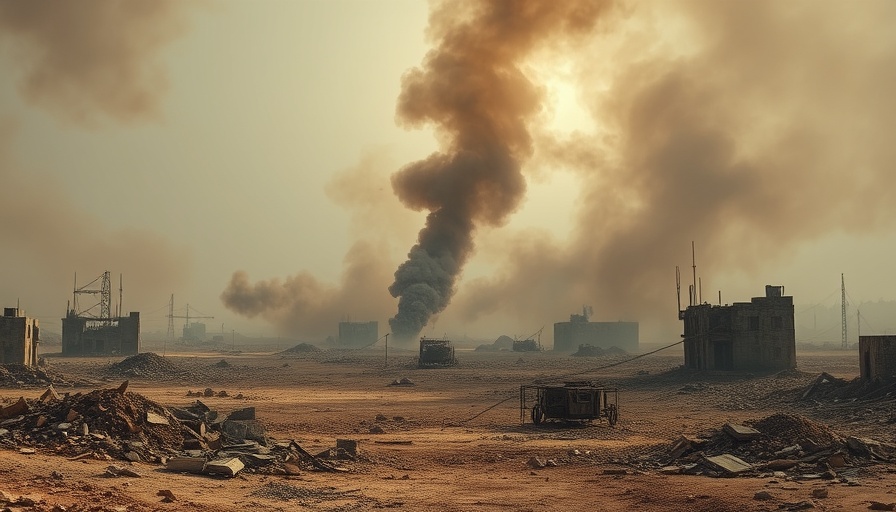
Escalating Violence in Gaza: A Humanitarian Crisis Unfolds
The recent bombardments by Israeli forces in the suburbs of Gaza City mark a significant escalation in hostilities, illustrating the oft-overlooked human toll of extended military conflicts. Over the course of a single weekend, airstrikes and artillery fire have left families scrambling for safety amidst the crumbling ruins of their homes. This violence coincides with Prime Minister Benjamin Netanyahu's decision to convene his security cabinet to strategize on the potential seizure of the city, raising concerns about what lies ahead for the densely populated area.
Residents Caught in the Crossfire: Stories of Survival
The plight of ordinary citizens caught in the crossfire is a critical aspect of this conflict. Local residents like Rezik Salah, a father from Sheikh Radwan, express fears of further dislocation as Israeli forces tighten their grip on the city. With homes destroyed and basic necessities running low, families are forced to seek refuge in less bombarded regions, where the infrastructure is often ill-equipped to support such a sudden influx of people. The emotional and psychological toll on these communities cannot be understated; many are now living in constant fear, unsure of when normalcy will return.
Political Ramifications: What Does the Future Hold for Gaza?
The escalation of military action is often tied to broader geopolitical strategies within the region. Analysts suggest that Netanyahu’s military decisions could be designed to sway political opinion at home, using the backdrop of conflict to unify the public under a perceived threat. However, such strategies may deepen the humanitarian crisis, provoking international condemnation and complicating Israel's diplomatic relations. The recurring cycle of violence not only impacts local civilians but also shapes the narrative of Israel on the global stage, raising questions about accountability and peace-building efforts.
Global Reactions: Understanding International Perspectives
The international community's response to the events unfolding in Gaza serves as an indicator of the global geopolitical climate. Many countries and organizations have condemned the violence, calling for immediate ceasefire and humanitarian access for aid delivery. However, the complexity of Middle Eastern politics means that opinions on Israel's actions vary widely. Countries with strategic interests in the region may support Israel while others advocate for Palestinian rights, underscoring the multifaceted nature of international relations surrounding this protracted conflict.
The Human Touch: The Economic Impact of War
The war significantly disrupts the local economy in Gaza, which is already hampered by previous conflicts and blockades. Destruction of infrastructure leads to job losses and a further decline in living standards for many residents. Aside from the immediate physical damage, the psychological impact on the workforce, especially the younger generation, poses long-term challenges for recovery and development in the region.
The Way Forward: Seeking Solutions Amidst Turmoil
As the situation in Gaza continues to deteriorate, the call for peace and reconciliation becomes ever more urgent. Potential pathways to resolution include diplomatic negotiations focusing on humanitarian assistance and the restoration of essential services. Engaging in constructive dialogue between Israeli and Palestinian leaders, with mediation from international bodies, may pave the way for lasting peace. Until that day comes, the cries of those affected ring through the air, reminding the world of the need for compassion amid conflict.
 Add Row
Add Row  Add
Add 



Write A Comment